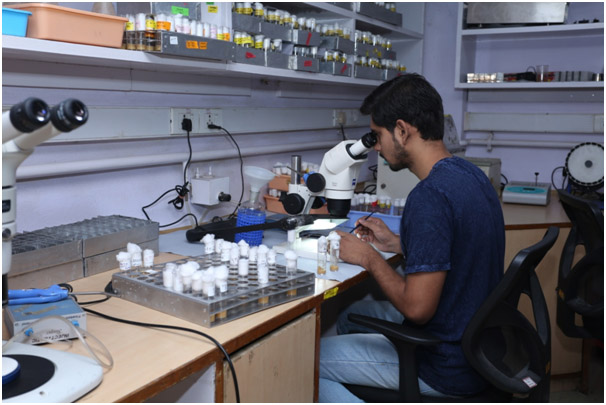CSIR - Centre for Cellular & Molecular Biology
Council of Scientific and Industrial Research
Ministry of Science & Technology, Govt. of India

We try to understand how cells come together to form a complex multicellular organism - what signals cells sense to know their fates, where these cues come from, and how they are encoded, stored and interpreted.
Cells work because of multiple classes of molecular machines working in them. We try to understand how the structures of these machines contribute to cellular processes and functions.
The genetic code holds information on the organisation and function of all living systems. We study the functional relevance of coding and non-coding regions of genomes in organismal development, health, and disease using various model systems.
We explore the mechanisms by which cells divide, differentiate, interact with their environment, and self-renew. These studies could lead to the development of novel approaches to address problems in human health.
Pathogens cause disease by subverting cellular processes of their hosts. We are elucidating the mechanisms by which various classes of microbes establish infection and ensure their survival.
Our conservation biotechnology program aims to provide insights on the protection and propagation of endangered wildlife, reveal aspects of animal behaviour, trace the evolutionary history of species, solve forensic cases, and help in early detection of wildlife diseases.
We use our understanding of plant genetics and physiology to develop crop varieties with enhanced traits such as higher yields and disease resistance.
The leads emerging from our fundamental research are being channelled into developing technologies for societal benefit.


